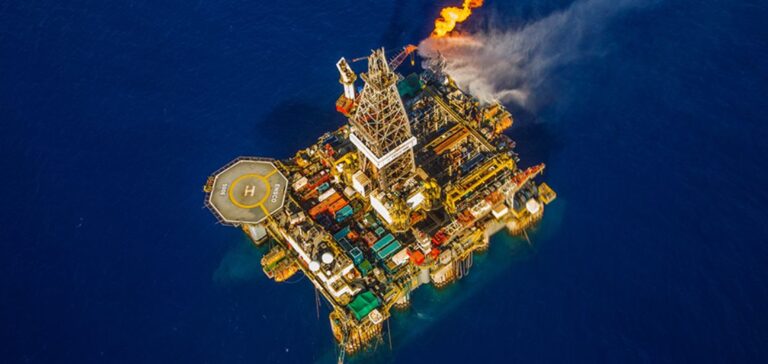The alliance between ExxonMobil and Qatar Energy, two giants of the energy sector, has initiated a new gas exploration operation in Cyprus’s Exclusive Economic Zone (EEZ). This initiative, conducted in Block 5 of the EEZ, marks a significant step in Cyprus’s strategy to strengthen its role in the Eastern Mediterranean energy scene.
Cypriot President Nikos Christodoulides confirmed this milestone through a public statement, emphasizing the strategic importance of the island in meeting the European Union’s growing energy needs. Since the onset of the global energy crisis, exacerbated by the war in Ukraine, the EU has been actively seeking alternatives to reduce its reliance on Russian hydrocarbons.
Rising Ambitions in a Competitive Context
Since 2019, ExxonMobil and Qatar Energy have held two exploration licenses off the Cypriot coast. A previous drilling in Block 10 revealed reserves estimated between 142 and 227 billion cubic meters, representing one of the largest discoveries in the region. These results have encouraged further exploration in adjacent blocks.
Meanwhile, discussions between ExxonMobil and a consortium comprising Total and Eni are advancing. This consortium controls seven of the thirteen blocks in the Cypriot EEZ, primarily in the southern region. Objectives include collaboration to pool discoveries and make development economically viable in a global market marked by gas price volatility.
Geopolitical Tensions in the Background
However, this surge in exploratory activities does not come without challenges. Turkey, which has controlled the northern third of the island since 1974, disputes Cyprus’s right to exploit these resources without first resolving the political division of the island. Ankara considers operations in the EEZ a direct threat to its regional interests and has regularly deployed ships to challenge Cypriot initiatives.
Despite these tensions, Cypriot authorities estimate that gas production could begin as early as 2027, with a dual objective of enhancing local energy security and positioning Cyprus as a key supplier to European markets.
A Strategic Positioning for the Mediterranean
The Eastern Mediterranean is emerging as a strategic zone in the energy sector, attracting major investments due to its untapped resources. Recent discoveries in Egypt and Israel, combined with Cyprus’s ambitions, reinforce the region as a hub of energy growth.
Moreover, the prospect of cross-border cooperation to develop liquefaction and export infrastructure illustrates the commercial and diplomatic potential of Mediterranean gas fields. However, the sustainability of these projects will depend on the ability of regional actors to overcome political disputes.






















